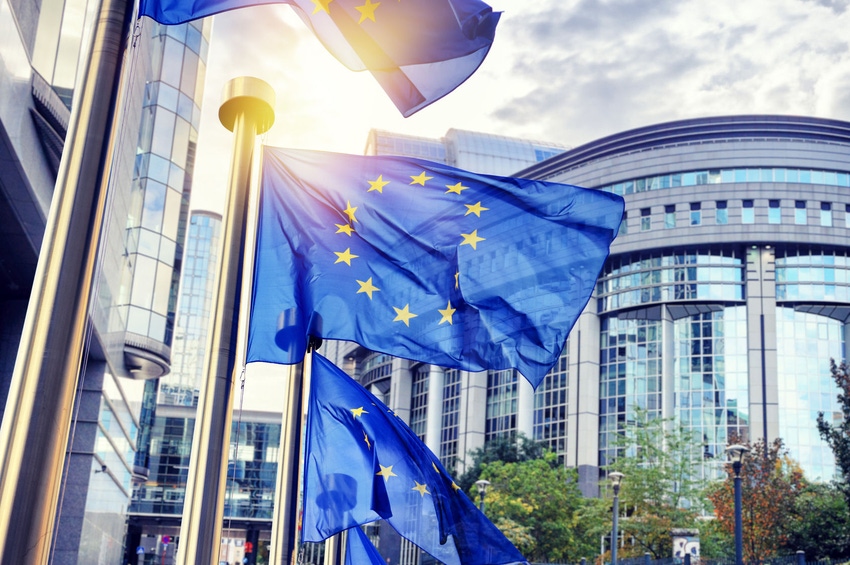The European Council has sat down and had a chat. The outcome of this chat was to have another chat before too long, and an agreement to aim for 2018 to complete legislation for the Digital Single Market.
October 25, 2017

The European Council has sat down and had a chat. The outcome of this chat was to have another chat before too long, and an agreement to aim for 2018 to complete legislation for the Digital Single Market.
Telecoms.com does occasionally seem to have a pop at the European Commission (hereafter referred to as the Gaggle of Red-tapers), but it seems we have been a bit unfair. The Gaggle are not the only boresome bureaucrats who are muddying the waters and potentially slowing the progress of European digital ambitions; the European Council is very happy to contribute its own brand of time consumption and inefficient plodding as well.
The European Council met this week at the Tallinn Digital Summit to discuss some of the most pressing matters swirling throughout our lives today, and top of the list was the Digital Single Market. But don’t worry, we’ll let you know the rules by the end of next year. The glacier pace of public sector never ceases to amaze.
To date, the boresome bureaucrats of Brussels have submitted 24 legislative proposals related to the Digital Single Market. Guess how many have been adopted as policy? Six. These policies are Cross-border portability, 470-790 MHz frequency band, Roaming, the Marrakesh Treaty, the Consumer Protection Cooperation and WiFi4EU. For all the talking, posturing and arguing, since the first discussion of the Digital Single Market, only 25% of the workload has been completed.
From Telecoms.com’s perspective, this is not good enough. Five more have been promised before June 2018 (Enforcement of Intellectual Property rights, Publicly funded data, Procurement framework for supercomputing, Unfair practices in platform-to-businesses relations and Modernisation of the company law framework), but the IP rights area has been bouncing around since 2015. And don’t forget, just because it has been adopted as policy by the Gaggle of Red-tapers doesn’t mean it is legislation in the member states.
The inability of the Gaggle and the Council to get anything done in a timely manner is almost admirable and terrifying. Ticking off another five of the 24 policies would certainly be a step in the right direction, but if precedent is anything to go by, we wouldn’t advise anyone to hold their breath.
On the table are some pretty important issues. The Electronic Communications Code will address such areas as spectrum allocation and management, there are regulations on data flow throughout the European Union as well as rules to protect the rights on citizens in international markets, data privacy and protection and also cyber security. These are all issues which should have been addressed some time ago.
Many would argue the digital economy is already here as digitally native organizations are dictating the ways and means of the world. Companies like Facebook, Google, Amazon and Uber are shaking the foundations of business and our personal lives, yet they are allowed to operate as they choose due to the floundering of rule makers. We perhaps aren’t seeing the negative impacts of this inability to work efficiently, but it shouldn’t be too long.
Let’s look at what the Digital Single Market is supposed to achieve; equality. Not only equality for the individual markets in the bloc, but also to put Europe on level pegging with the larger international markets around the globe. In theory, it works. The EU is the second largest economy in the world, only behind China, giving it greater influence in negotiating trade deals.
The cumulative size of the population also give entrepreneurs and SME’s greater opportunity, as there is less concern about violating localized legislation; being compliant in the digital, borderless world is complicated, but the Digital Single Market will help. The fact that some of the most successful technology companies come from the larger countries is no coincidence; they can scale without the fear of being non-compliant as they expand.
In this light, the Digital Single Market is crucial in ensuring Europe and European businesses can fight for a place at the top-table of the digital economy. The lethargic legislators might be trying to help the situation, but the glacier pace of progress is only staggering growth in Europe as the US and China claim the bounties of the connected economy. The more the bureaucrats plan our glorious rise to the top, the further behind we fall.
One of the outcomes of this meeting which we can get behind is a call from some ministers and diplomats for more regular meetings. This is sensible. But Matthias Machnig, German State Secretary at the Federal Ministry for Economic Affairs and Energy, perfectly summed up the situation:
“We need more councils where decisions are taken, not where we just come to make statements.”
Well said Matthias, and we completely agree with you. Get a move on.
About the Author(s)
You May Also Like








.png?width=300&auto=webp&quality=80&disable=upscale)


_1.jpg?width=300&auto=webp&quality=80&disable=upscale)


.png?width=800&auto=webp&quality=80&disable=upscale)